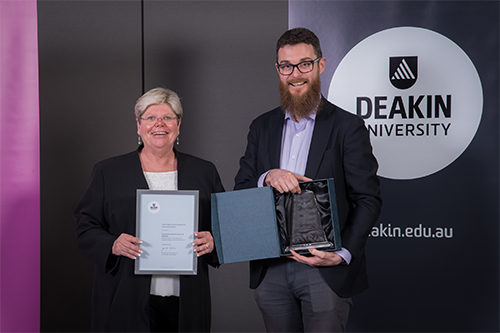
For universities, the solution to contract cheating is elusive at best. For example, how can a marker you tell if a student hasn’t completed their assignments themselves?
Contract cheating occurs when students outsource their assessed work to a third-party and submit it under the pretence of being their own work. Studies show that 6% of University students admit having obtained an assignment through a third-party.
However, new academic research has found that three in five University students who engage in contract cheating will be caught by markers using machine learning software.
The research, by Deakin University associate professors Phillip Dawson and Wendy Sutherland-Smith, it is the first of its kind into the potential promise of machine learning to address the issue.
In the study, Deakin University and academic integrity solutions provider Turnitin worked with 24 University markers and asked them to spot contract cheating in a pile of 20 assignments from their subject area.
The researchers then gave them a report from an early alpha version of Authorship Investigate and found that the contract cheating detection rate rose significantly when markers used the report.
Associate professor Dawson said that while it has been suggested that looking back over all of a student’s work might be a solution, it’s not exactly practical.
“In practice, it’s not really feasible to read over a dozen of assignments for every single student. However, it’s much more feasible with a computer software like Turnitin’s Authorship Investigate,” Associate professor Dawson told The Educator.
“In addition to helping markers spot contact cheating, software like Authorship Investigate will help substantiate claims about contract cheating.”
Associate professor Dawson said other research shows that markers often don’t report contract cheating because they think it’s time consuming or too hard to substantiate.
“I think in the future, reports from software like Authorship Investigate will be a key piece of evidence in academic integrity proceedings,” he said.
‘Universities can’t tackle contract cheating alone’
Turnitin’s principal product manager, Mark Ricksen – who collaborated with associate professors Dawson and Sutherland-Smith in the study – said universities need a more effective way to recognise and address contract cheating – and they can’t do it alone.
‘Turnitin’s Authorship Investigate tool provides markers with insights into whether students are doing their own work,” Ricksen told The Educator.
“Often, marking is conducted by sessional staff who are only given about 20 minutes per assignment.”
Ricksen said that by using machine learning, the tool is able to bring together all the submissions made by a student and allow rapid scanning of key points of evidence, helping markers to more accurately identify suspicious student submissions, and increasing their confidence to escalate the case to the academic integrity office.
“The report generated by Authorship Investigate can also significantly speed up the investigation process of contract cheating, particularly for more complex cases that cross over Schools and Faculties,” Ricksen said.
“We know that markers often find it difficult to take their suspicions further, when they feel sufficient evidence is lacking.”
Ricksen said the report enables investigators to gather specific points of difference within a student’s body of work, to help determine the direction of investigations and hearings.’
“While markers used an early alpha version of Authorship Investigate, the study highlights the incredible value of technology to help markers detect contract cheating in a better, faster and more impactful way,” he said.


